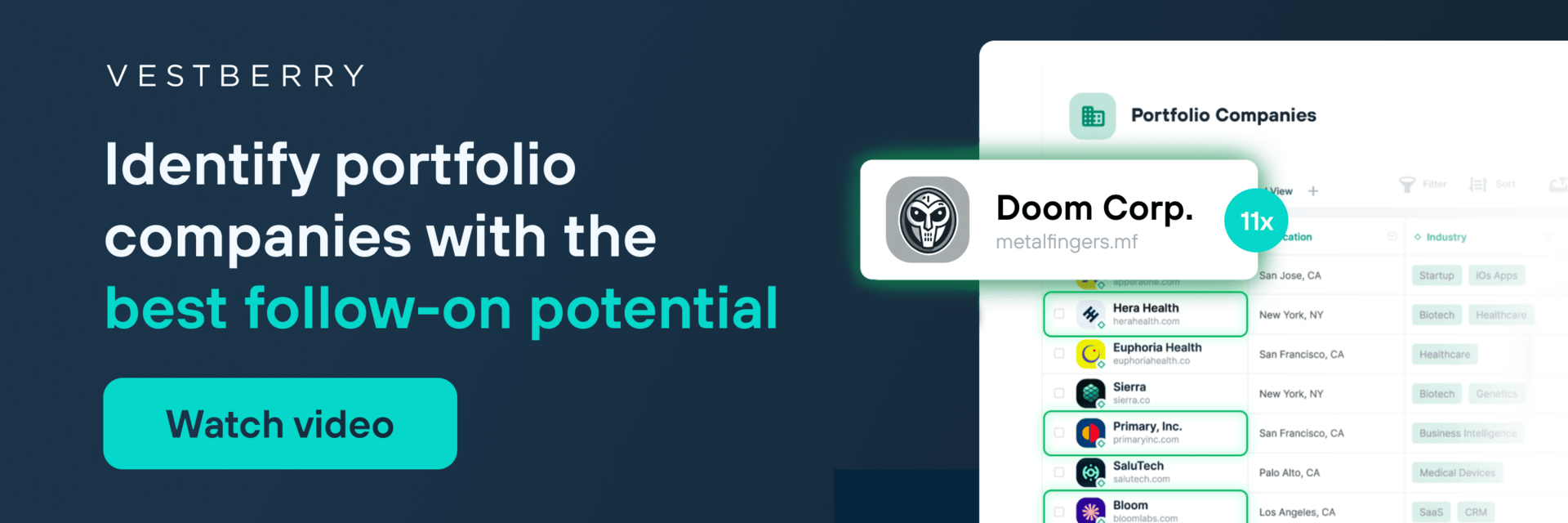👋 Hi, I’m Andre and welcome to my newsletter Data-Driven VC which is all about becoming a better investor with Data & AI. Join 29,430 thought leaders from VCs like a16z, Accel, Index, Sequoia, and more to understand how startup investing becomes more data-driven, why it matters, and what it means for you.
Brought to you by VESTBERRY - Portfolio Intelligence Platform for Data-Driven VCs

Watch this short video to learn how to identify the best follow-on investment opportunities using portfolio data and simple planning. With VESTBERRY, VCs can easily collect KPI data, stay updated, and forecast portfolio development to make data-driven investment decisions.
Few weeks ago, I gave a keynote speech about “AI in VC: Outlook for 2025” at Vestberry’s Venture Intelligence Day in Prague. For those of you who couldn’t join, I shared my slides here. Shortly after publishing them via the newsletter, I received several DMs asking for key insights from the other conference sessions.
Thankfully, our friends at Vestberry agreed to make the exclusive recordings available for our DDVC community via our platform “The Lab”. You can get 40% discount on your membership today and access all Venture Intelligence Day recordings here (together with tons of other resources such as the recordings of our Virtual Data-Driven VC Summit 2024)
For those of you wanting the key takeaways of the respective sessions, I’m happy to write this episode and share brief summaries including select video snippets from the different talks. Given the density of information, I split it up into two episodes. Today is part I of II.
It’s for everyone interested in the state of digitization in venture capital, and how data & AI change the game end-to-end across the value chain, from sourcing over screening to portfolio value creation, fundraising, LP and investor relations, to back office functions, and more.
10 Key Takeaways (Part I of II)
“Portfolio intelligence is a missed opportunity for VCs”
“Strong need for a single source of truth”
“Just as it is now impossible to envision working without spreadsheets, soon, you will find it unthinkable to make decisions without structured data”
“Importance of setting clear data expectations with portfolio companies early on”
“At later stages with fewer opportunities and higher investment volumes, white glove service and personal interactions remain important. At earlier stages with more deal volume and smaller investment volumes, however, automating interactions is the only way to go”
“Importance of starting with SaaS solutions and refining these before building proprietary tools”
“It’s key to create a data-driven culture through systematic training and transparency, fostering an environment where data supports every layer of decision-making across investment, fund administration, and LP relations”
“It’s a big challenge to align technical and investment teams”
“When asked about building vs. buying data systems, all agreed that a hybrid approach works best”
“While tools can be bought, the core system should be built to reflect each fund’s unique strategy and workflow”
Session Snapshots (Part I of II)
#1 Future of Portfolio Intelligence
Marek started his talk with a strong statement: “Portfolio intelligence is a missed opportunity for VCs”. He emphasized that while much time and energy go into deal sourcing during a fund’s initial phase, the ongoing management of investments over the following 4 to 10 years is equally critical yet often lacks a data-driven approach.
Hereof, Marek outlined the fundamental “shift from merely collecting data to truly leveraging it for value creation within portfolio companies.” He highlighted the “strong need for a single source of truth” for portfolio metrics and performance data, noting that “60% of companies fail because of cofounder issues,” making it essential to identify and act on early warning signals.
With this data, VCs can “double down on” the right companies and support them strategically. This approach, Marek said, enables VCs to not only manage risks but also actively assist portfolio companies through market insights, strategic partnerships, and hiring.
“Just as it is now impossible to envision working without spreadsheets, soon, you will find it unthinkable to make decisions without structured data” he said, envisioning a future where data and AI become core strengths that set VCs apart.
Subscribe to DDVC to read the rest.
Join the Data Driven VC community to get access to this post and other subscriber-only content.
Join the Community
